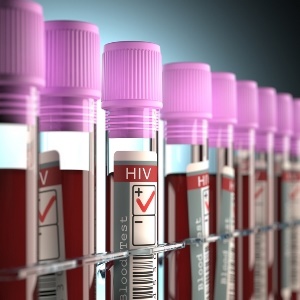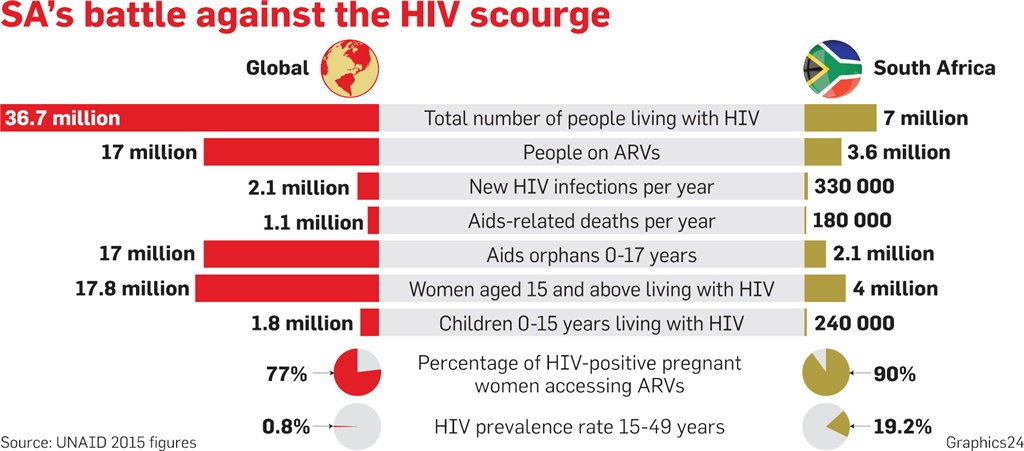
Finding a cure for HIV is challenging, but certainly not impossible, say scientists. Efforts have been made in the past four years, although none has yielded positive results.
Speaking ahead of the 21st International Aids Conference this week, Dr Anthony Fauci, director of the National Institute of Allergy and Infectious Diseases, said it was the evolving nature of HIV that made it hard to kill and flush out of the system.
“The special nature of the virus, how it attacks the body and integrates itself into [us] and how the immune system responds to HIV make it a challenge to find a cure. Every other attempt to eliminate and flush it out by activating the immune system has
been unsuccessful.
“This does not mean that it’s impossible. However, it does show us that it is not going to be an easy task.”
Fauci mentioned several methods, including stem cell transplants, which scientists have been using to eliminate and flush out HIV from patients’ immune systems. In 2012, there was great optimism at the 19th International Aids Conference when researchers revealed that a German man appeared to have been cured after a bone marrow transplant.
Timothy Brown was diagnosed with leukaemia in 2006 and a year later received a stem cell bone marrow transplant from a donor with a rare genetic mutation that deletes receptors found around immune system cells, making it impossible for HIV to enter and infect them.
People with this genetic disorder are resistant to HIV. Even if they are infected, the virus cannot multiply and ends up flushed out of their systems.
Fauci said while this was something scientists were looking at, “it’s impractical to think we are going to do that with millions of people around the world”.
But he said options like gene editing and controlling virus rebound in the absence of antiretrovirals were exciting.
Gene editing involves plucking out or removing the entire HIV-1 genome from a patient’s infected immune cells, while controlling the virus allows people to safely stop antiretroviral therapy.
Professor of medicine at the University of California Steven Deeks agreed with Fauci that gene editing and controlling virus rebound might be viable options.
“If we are going to cure people or achieve remission, it’s probably going to be easy on people who have low viral and better immune function,” Deeks said.
“The best way to do that is get people on therapy early. Another way is gene therapy, although I’m not as optimistic as others. We might not be able to have a global approach because of the expense.”
Sharon Lewin, director of the Peter Doherty Institute for Infection and Immunity, agreed with Fauci and Deeks.
“We know that remission has been possible in a number of cases reported in the past four years: Post-transplantation with the Boston patients, very early treatment with the Mississippi baby and the French cohort – the few individuals that can naturally control the virus after stopping treatment,” she explained.
“We have done a range of clinical trials over the past four years with activating the virus in what we call shock-and-kill. What that taught us is that just waking up the virus is not enough; we need something to also eliminate those cells.”
READ: New HIV vaccine for South Africans
And the HIV vaccine?
Things are looking positive on the HIV vaccine front, although scientists warn we’re not there yet.
This week, local researchers revealed some promising turns with the findings of the latest vaccine trial given the green light to proceed with a large-scale efficacy trial.
The HVTN 100 study, conducted by US-based HIV Vaccine Trials Network (HVTN) in partnership with South African research sites, found that a large number of South African participants showed a good immune response to the vaccine.
Medical Research Council president Dr Glenda Gray said she was excited by the findings of the HVTN 100 because “it brings us a step closer to finding an HIV vaccine”.
“We are not there yet, but we are moving in the right direction,” she said.
Following HVTN 100’s success, local scientists are now preparing to recruit 5 400 participants for a large-scale trial to determine whether the modified vaccine is safe, tolerable and effective.
Fifteen sites have been identified around the country and the process will start in November.
Participants in the new trial will receive five injections over a year and will be followed for two more years to establish whether the vaccine offers sustained protection.
TALK TO US
How will finding a cure or vaccine for HIV affect your life?
SMS us on 35697 using the keyword HIV. Please include your name and province. SMSes cost R1.50




 Publications
Publications
 Partners
Partners









